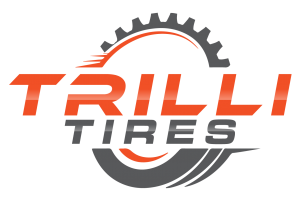Oil & Fluids
Maintain a healthy engine
To operate your automobile properly, you need several fluids. For internal-combustion engines to run properly, you need motor oil or engine oil. Transmissions require transmission fluid or oil. Brakes and power steering require hydraulic fluid. You also need windshield wiper fluid in order to clean your windshield from any debris that may build up during driving. These fluids must be regularly topped up, changed, and flushed in order to keep your vehicle running smoothly.
Heat is created when a car starts to operate. The engine uses a few essential fluids in order to cool down and lubricate moving parts. Here is a list of seven of these fluids:
Engine oil
Your car’s engine is the most important component. Engine oil is essential for any car that runs on an electric motor. It lubricates the engine and maintains a safe temperature. A car that runs out of oil can lead to a system failure.
Coolant
The coolant regulates the engine’s temperature, as the name suggests. Coolant keeps your engine safe by absorbing heat and dissipating heat through the radiator.
Brake Fluid
Brake fluid transmits the force of your foot on the brake pedal to the brake system to stop your vehicle. Brake fluid becomes less effective as it absorbs moisture from the atmosphere.
Transmission Fluid
Transmission fluid cools and lubricates the moving parts of your car’s gear-system. It can also be used as a hydraulic fluid to allow the transmission computer’s individual parts to function.
book your appointment today
For Oil & Fluids
Differential Fluid
The differential fluid is used on four-wheel-drive vehicles as well as rear-wheel-drive vehicles. It provides cooling and lubrication for the gears and bearings.
Power Steering Fluid
The power steering fluid allows you to easily manipulate the steering column and creates that effortless turn we all love about our cars.
Windshield Wiper Liquid
Windshield wiper liquid is not essential for your car’s engine and mechanical parts. It cleans your windshield and makes it easier to see in rainy, muddy or dusty conditions.
Frequently Asked Questions
Your transmission’s lifeblood is the transmission fluid. It is what cools and lubricates your transmission when vehicle is operating. Transmission fluid should have a neutral odor and be mostly transparent with a reddish or greenish hue. It should not be opaque or foul-smelling. Your transmission must be inspected regularly with scheduled fluid change sessions.
Conventional engine oil, which is made from petroleum, is less popular than synthetic oils. Synthetic oils can be refined further, removing any particulates that might remain in conventional oils. It is more durable than conventional oil, lasts longer and can withstand extreme heat better.
The radiator is the part of your vehicle which keeps your engine cool and prevents excessive heating. The radiator must be kept clean in order to keep it cool. Over time, it can become clogged with rust, sludge, and other solid materials. This causes the cooling system to become less efficient and experience clogs. This has a direct effect on your vehicle’s performance. Regular radiator flushes are enough to maintain the system’s health and should be a normal part of your car’s routine maintenance.
Brake fluid deteriorates over time and is not affected by distance traveled. Follow the manufacturer’s recommendations on when to replace the brake fluid. For safety reasons, the brake fluid should be replaced every 18 months if there is no recommendation.
